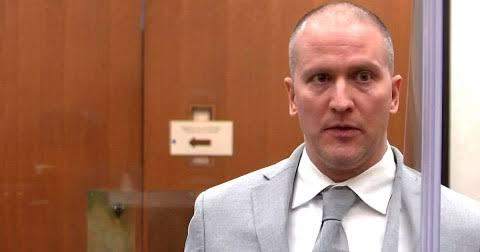Ex-police officer Derek Chauvin sentenced to 22-1/2 years for George Floyd murder
Minneapolis (Reuters) – A Minnesota judge sentenced former police officer Derek Chauvin to 22-1/2 years in prison on Friday for the murder of George Floyd during an arrest in May 2020 on a Minneapolis sidewalk, video of which sparked global protests.
A jury found Chauvin, 45, guilty on April 20 of unintentional second-degree murder, third-degree murder and second-degree manslaughter after a trial that was widely seen as a landmark in the history of U.S. policing.
Before the sentence was handed down, Floyd’s brothers told the court of their anguish, Chauvin’s mother insisted on her son’s innocence, and Chauvin himself briefly offered condolences to the Floyd family.
Hennepin County District Judge Peter Cahill said it was important to recognize the pain of the Floyd family and acknowledged the global notoriety of the case only to say it would not sway him.
“I’m not going to attempt to be profound or clever because it’s not the appropriate time,” Cahill said, explaining his reasoning would be laid out in a 22-page memorandum. “I’m not basing my sentence on public opinion. I’m not basing it on the attempt to send any messages. The job of a trial court judge is to apply the law to specific facts and to deal with individual cases.”
The hearing began with prosecutors asking several members of Floyd’s family to address the court. Floyd’s 7-year-old daughter Gianna was first, appearing in a video recording.
“I ask about him all the time,” she said in the video as Chauvin sat before the judge dressed in a gray suit and tie, a blue mask covering his nose and mouth. “My daddy always used to help me brush my teeth.” Asked what she would say to him if she could see him again, she said: “It would be I miss you and I love you.”
Prosecutors had asked for a 30-year prison sentence, double the upper limit indicated in sentencing guidelines for a first-time offender. Cahill ruled earlier this month that prosecutors have established grounds for giving Chauvin a harsher sentence.
The defense had asked for probation and had unsuccessfully sought a retrial ahead of an expected appeal.
Video of Chauvin, who is white, kneeling on the neck of Floyd, a 46-year-old Black man in handcuffs, for more than nine minutes on May 25, 2020 caused outrage around the world and the largest protest movement seen in the United States in decades.
Floyd’s brother Terrence Floyd addressed Chauvin directly during his victim impact statement on Friday.
“What was going through your head as you had your knee on my brother’s neck?” he asked. He told the judge he wanted the maximum sentence. “We don’t want to see no more slaps on the wrist. We’ve been through that already.”
Haunted by Video
Philonise Floyd, another brother, said he was haunted by the videos of Floyd’s death, which were replayed countless times at Chauvin’s trial.
Chauvin addressed the judge, saying he could not give a full statement due to “additional legal matters.”
“But very briefly though, I do want to give my condolences to the Floyd family,” he said. “There’s going to be some other information in the future that would be of interest and I hope things will give you some peace of mind. Thank you.”
He did not elaborate.
Chauvin’s mother, Carolyn Pawlenty, told the judge she would always believe her son was innocent and that her life’s two happiest moments were giving birth to Chauvin and pinning his police badge on him when he joined the Minneapolis Police Department.
“Derek has played over and over again in his head the events of that day,” she said, her voice quavering at times. “I have seen the toll it has taken on him. I believe a lengthy sentence will not serve Derek well. When you sentence my son, you will also be sentencing me.”
Aggravating Factors
In a sentencing memorandum, prosecutors from the Minnesota attorney general’s office wrote that Chauvin’s crime “shocked the conscience of the Nation.”
In a six-page ruling last month, Cahill found that prosecutors had shown there were four aggravating factors that would allow him to hand down a longer prison term than sentencing guidelines would dictate.
The judge agreed that Chauvin abused his position of trust and authority; that he treated Floyd with particular cruelty; that he committed the crime as part of a group with three other officers; and that he committed the murder in front of children.
Through his attorney Eric Nelson, Chauvin had asked in court filings that the judge to sentence him to probation, writing that the murder of Floyd was “best described as an error made in good faith.”
Chauvin was helping arrest Floyd on suspicion of using a fake $20 bill.
Chauvin has been held at the state’s maximum security prison in Oak Park Heights since his conviction.
In Minnesota, convicted people with good behavior spend two-thirds of their sentence in prison and the final third on supervised release.
In 2019, the former Minneapolis police officer Mohamed Noor was sentenced by a different judge to 12-1/2 years in prison after he was found guilty of third-degree murder and second-degree manslaughter for fatally shooting an Australian American woman, Justine Damond.
The three other police officers involved in Floyd’s arrest were, like Chauvin, fired the day after. The three are due to face trial next year on charges of aiding and abetting Floyd’s murder.



